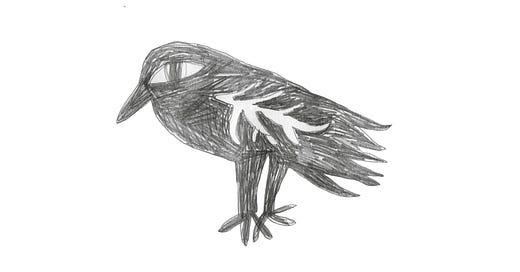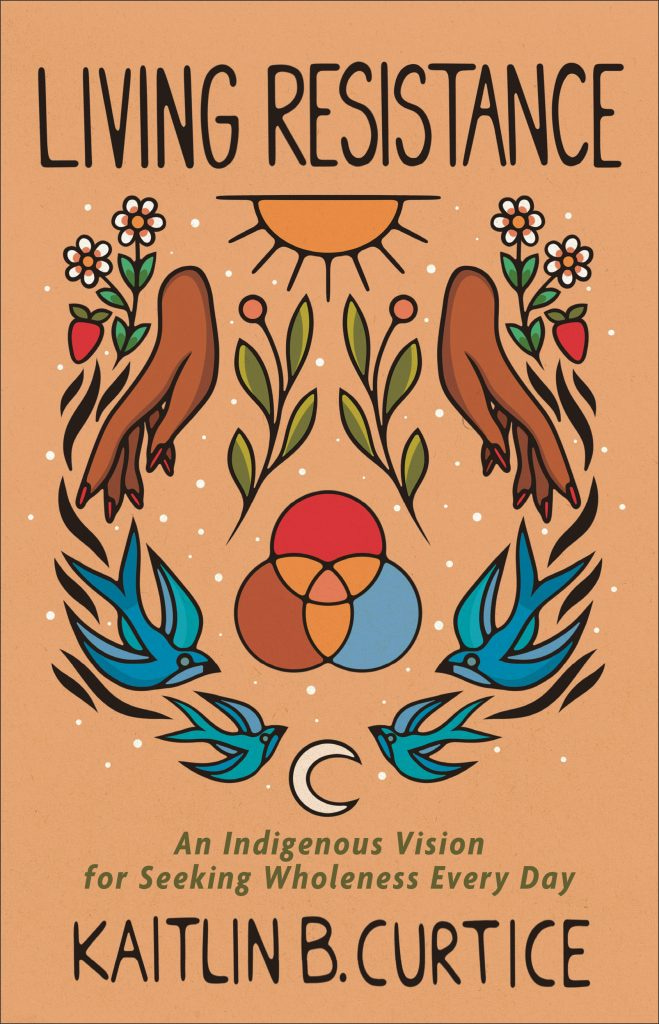Hello,
I’m trying something new today.
One of the things I love about Substack is the way that it invites connection between different publications, but also - hopefully - between readers, too. I’ve been wondering how to connect everyone up a little bit more - that is, after all, one of the functions of a clearing: it’s a place to get together.
So here’s the idea: I’m going to plant a seed here today, and invite you all to respond. It’s a question that I’m genuinely pondering - an authentic enquiry. The best way to approach it, in my view, is through multiple voices, perspectives and experiences. Actually, that’s the best way to approach a lot of things.
This is an experiment, and I’d love to know your thoughts. If it works, maybe we’ll do it more regularly!
I often feel like a terrible activist. On one hand, I care deeply about a lot of social and environmental issues, but I never feel like I do enough. Every time I open Instagram, I see a picture of a different group waving placards somewhere, and I feel like a fraud. What use am I in this global struggle for justice?
The problem is that so many of the common protest methods are nightmarish for me as an autistic person, involving loud environments, crowds and uncertainty. I realise that protest isn’t necessarily supposed to be fun, but at the same time, it is supposed to be approachable. Many protests I watch from afar express exuberance and joy, but in a very neurotypical way. I don’t begrudge this, but neither do I feel welcome to the table. There have been times, in the past couple of years, when I’ve felt specifically excluded.
I’m sure I’m not the only one. The stakes are not the same for all of us. Plenty of people cannot march. Plenty cannot risk arrest. Plenty don’t dare to attract the attention of the police or their employers. Plenty don’t have the energy or resources to make a big noise. We might say that this is all well and good; that those who are able can step forward on behalf of all of us. But then an activism that excludes minority groups lacks their voices, too. A good example is the ‘debate’ (read: raging Twitter battleground) over plastic straws - in this 2018 article, Alice Wong explains why the issue is nothing like a simple matter of removing environmental pollutants. The nuance had been invisible in the mainstream debate.
Without minority voices, protest risks replicating the current social order, rather than challenging it. So, what can we do? I’d love to hear your thoughts on diversifying protest. How can existing protest movements make space for a wider range of voices? What are your experiences of taking part in protest movements? What have you found effective or impossible? Do you know about existing models of participation that would help us all? Could you share your unique perspective or situation and how it relates to activism?
Here’s how to take part:
Use the comments to share your views, or to link to a piece you’ve written elsewhere.
Share links to articles written by other people.
Read as much as you write, show your support, and comment respectfully (our community guidelines are here).
To keep away the vampires, the comments section is for paid subscribers only (it’s nearly Halloween, after all). If financial need means that you can’t take part, we have some free subs to give away - apply here.
If you’d rather share your response publically, post it to Notes with this article linked in, and (hopefully) we’ll see it!
Over to you… I’m really looking forward to reading your thoughts!
See you soon,
Katherine
Coming up at The Clearing
Events for paid subscribers
True Stories Book Club
17 October, 7pm UK
October’s book club will feature Kaitlin Curtice talking about her book, Living Resistance - there’s a reading guide here. Do join us live if you can, and log-on details will be sent via Chat.
On 9th November we will welcome Camille T. Dungy to talk about her book, Soil. Put the date in your diary; details to follow.
If you think a friend or loved one would enjoy The Clearing by Katherine May, gift subscriptions are available here | Website | Buy: Enchantment UK /US | Buy: Wintering UK / US | Buy: The Electricity of Every Living Thing UK / US
This newsletter may contain affiliate links.







I thought I’d better answer my own question here! It’s ironic to post this today - I wrote it a week ago and lined it up for publication, and now it finds me feeling incredibly drained and overwhelmed, due to a lot of behind-the-scenes advocacy this week. That’s a fundamental part of my autistic experience: my energy levels are wildly inconsistent, and that means I don’t show up in the same way that others can. But that’s because I’m often working hard on things that I don’t post on here. I also process things very slowly and like to look at all angles and read deeply before I declare on anything - that means I’m always a week behind everyone else. At least. Probably a year.
So anyway, I’m be reading everything today and not saying much, but it’s lovely to hear from you all 🙏
I’d also like to recommend this piece by Satya Robin from earlier this week: https://open.substack.com/pub/satyarobyn/p/people-are-really-upset-with-me?r=6f2w5&utm_medium=ios&utm_campaign=post
Just coming back to add... The way we raise our children is also a form of protest. Maybe one of the most important ones, even if largely invisible and very gradual. But if the only the way we participate in protest is by refusing to perpetrate the old, unhelpful cycles within our own families, to raise kind, compassionate human beings - that is good enough. More than good enough, actually.